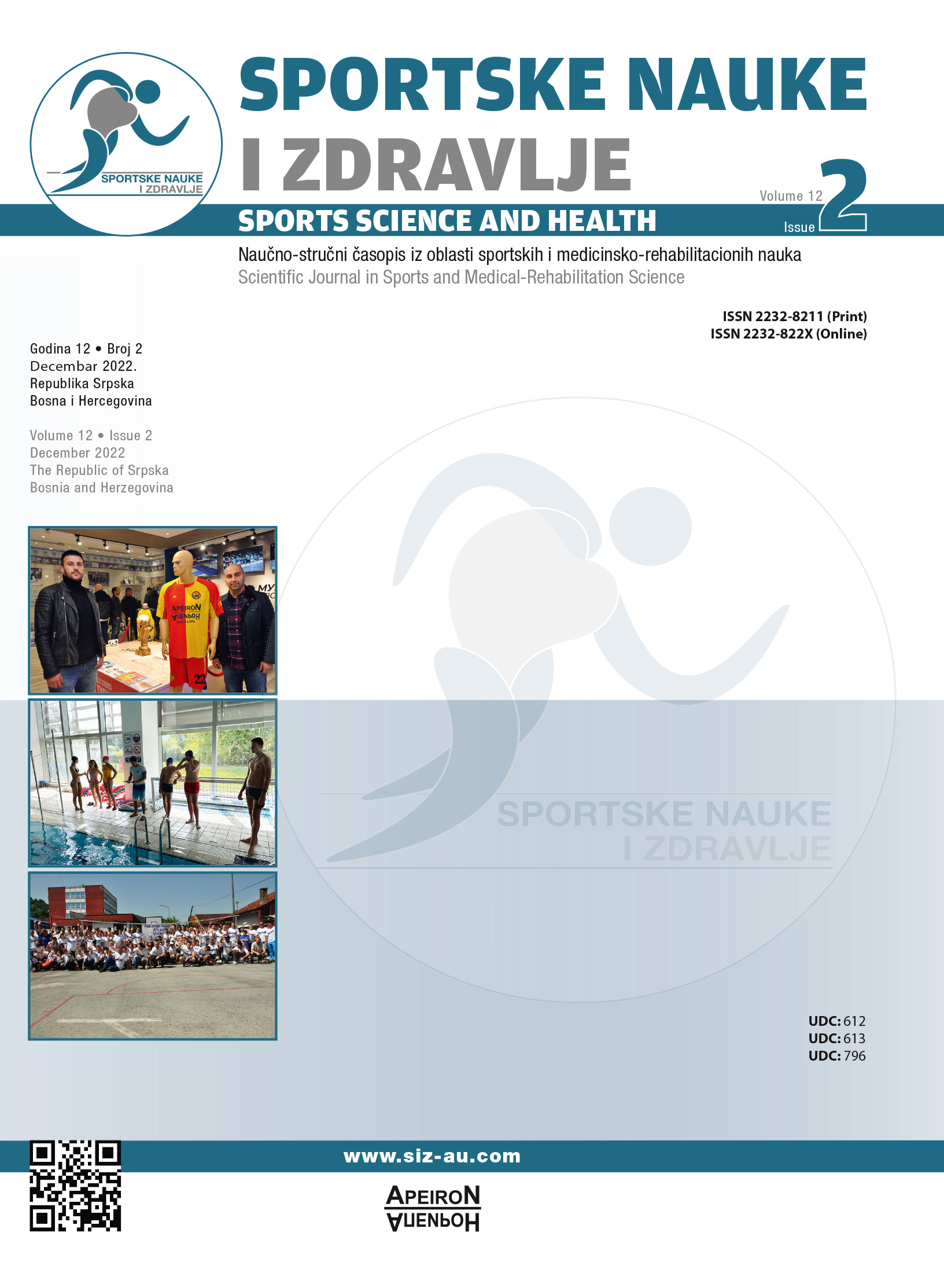The Relationship of Goal Orientation, Self-Esteem, Situational Motivation and Satisfaction From Sports Among Young Karate Athletes
DOI:
https://doi.org/10.7251/SSH2202150SAbstract
The main problem of the research was to determine the relationship between goal orientation, satisfaction, self-esteem, and situational motivation among young karate athletes from Republic of North Macedonia. The research was carried out on a sample of 100 respondents who are engaged in karate sport between the ages of 11 and 14 from Republic of North Macedonia. The sample is divided into two subsamples according to gender, namely 54 male respondents and 45 female respondents. The sample was drawn from several karate clubs in Republic of North Macedonia. In order to realize the goals of the research, several scales were applied to assess goal orientation, satisfaction, self-esteem and situational motivation. The obtained data were processed with appropriate parametric statistical methods. Based on the obtained results, it can be concluded that a larger number of respondents (young karate athletes) from our sample are more focused on developing and improving their competence, and less on achieving results and relying on their abilities. Interrelationships among the four subscales assessing the level of self-determination to be physically active, as expected the more proximal along the continuum are more positively correlated with task orientation than those more distal along the continuum. The research results confirm that task orientation is more positively related to more self-determined types of situational motivation (the internal motivational regulator -intrinsic motivation and the identification motivational regulator -identified regulation) and negatively related to less self-determined types of situational motivation (external motivational regulator- external regulation and guilt regulator - introjected regulation). Based on all that has been stated, it can be concluded that among young karate athletes aged 11 to 14, internal motives (i. e. fun, personal challenge, etc.) or so-called essential motives for playing sports should be promoted.
